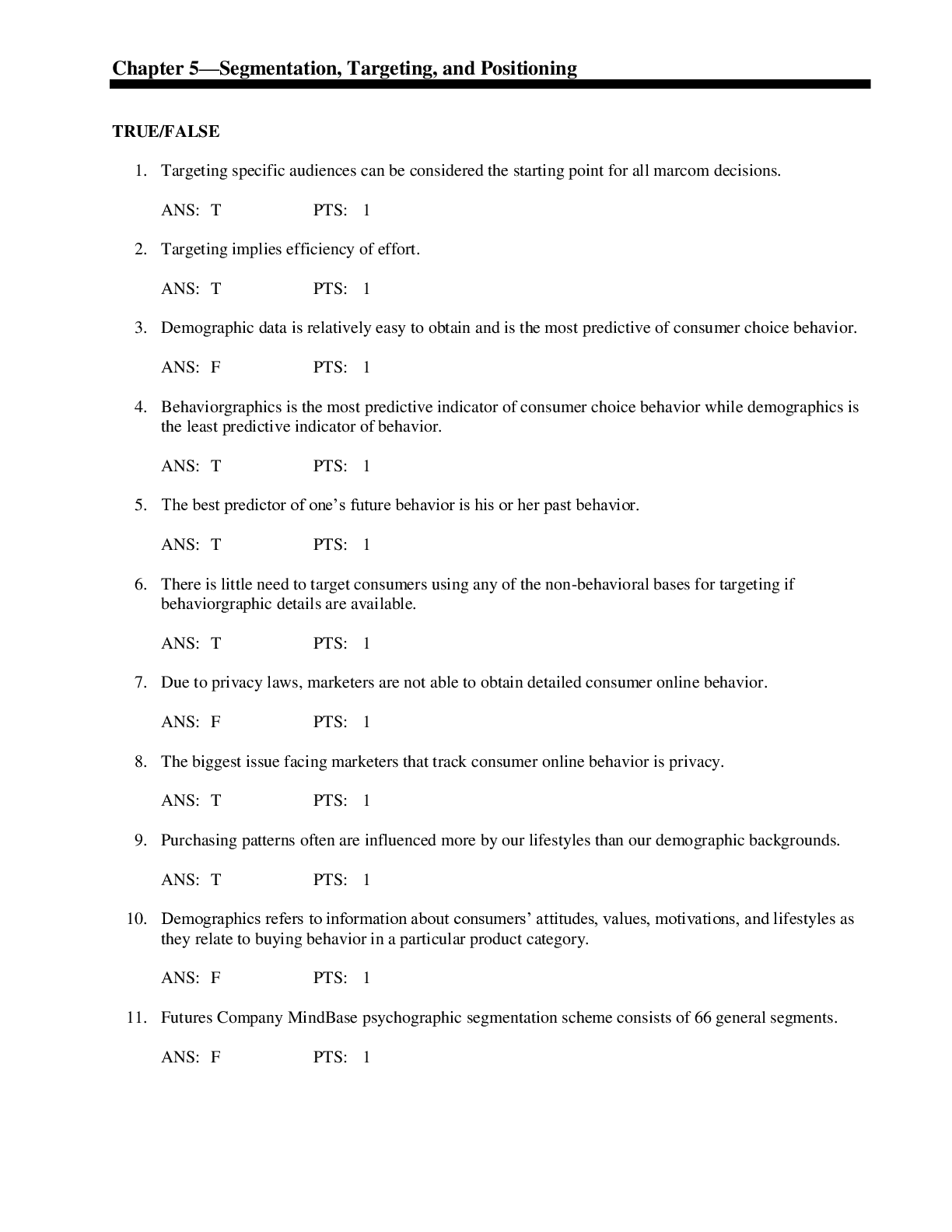Health Care > QUESTIONS & ANSWERS > 2021 MidTerm Seraphin HEALTH CARE questions and answers 1005 correctly solved (All)
2021 MidTerm Seraphin HEALTH CARE questions and answers 1005 correctly solved
Document Content and Description Below
Question 1 Biofeedback, deep breathing, mindfulness, and progressive muscle relaxation are strategies that are typically used in which of the following therapies? A . Relaxation therapy B . So... cial skills training C . Motivational Interviewing D . Applied behavioral analysis Question 2 According to the APA which of the following are required to support a child’s DSM5 diagnosis? A . The child’s clinical presentation fulfills the specific symptom based diagnostic criteria. B . The child’s symptoms are not caused by other diagnoses or stressors. C . The child’s symptoms are impairing a child’s functioning in at least two settings. D . A and B Question 3 Which of the following is NOT consistent with good sleep hygiene? A . Allow child to keep a cell phone at bedside. B . Establish bedtime routines and maintain consistently. C . Limit use of electronics in the evening i.e., television, computer, etc. D . Set and maintain a bedtime that will allow for adequate sleep. Question 4 Which of the following antipsychotic medications have the greatest tendency to increase appetite and body weight? A . Aripiprazole (Abilify) B . Ziprasidone (Geodon) C . Haloperidol (Haldol) D . Risperidone (Risperdal) Question 5 When assessing a child with disruptive or aggressive behavior, the clinician asks “Have you been thinking about or planning to hurt anyone?” to screen for which of the following diagnostic categories? A . Safety B . Bullying C . Conduct disorder D . Oppositional defiant disorder Question 6 The clinician assessing substance abuse in an adolescent asks, “Did you develop more mood or anxiety problems after you started using?” to screen for which of the following diagnostic possibilities? A . Substance use disorder B . Substance withdrawal C . Substance tolerance D . Substance induced mental disorder Question 7 When the patient lacks capacity to make a decision the nurse has the ethical responsibility to do which of the following? A . Become a surrogate decision maker for the patient. B Consult a formally-designated surrogate for patient choices. . C . Make safe choices for the patient based on the nurse’s beliefs and values. D . Continue to support all the patient’s choices until a surrogate can be found. Question 8 When assessing a child who has presented with concerns of being anxious and worried, the provider asks the child “Do you get sudden surges of fear that make your body feel shaky or your heart race?” to screen for which of the following common diagnostic possibilities? A . Obsessive -compulsive disorder B . Posttraumatic stress disorder C . Panic disorder D . Separation anxiety disorder Question 9 Which of the following antipsychotic medications has the greatest risk for weight gain and lipid changes? A . Ziprasidone (Geodon) B . Aripiprazole (Abilify) C . Olanzapine (Zyprexa) D . Quetiapine (Seroquel) Question 10 A period of at least one week in which both a manic episode and a major depressive episode occur almost daily is consistent with which diagnosis? A . Bipolar II Disorder B . Cyclothymic Disorder C . Bipolar I Disorder, mixed episode D . Bipolar I Disorder, cyclothymic type Question 11 Which of the following is NOT true about symptomatology of anorexia nervosa? A . Most aberrant behaviors directed toward losing weight occurs in secret. B . All patients have an intense fear of gaining weight and becoming obese. C . Most patients with anorexia nervosa will have no difficulty eating with their family in public places. D . Fear of gaining weight and becoming obese frequently contributes to the individual’s lack of interest in and resistance to therapy/treatment. Question 12 Sleep-related hallucinations occurring at sleep onset are known as which of the following? A . Hypnagogic B . Hypnopompic C . Complex hallucinations D . Paranormal hallucinations Question 13 The theory that depression results from specific thought distortions is consistent with which of the following? A . Cognitive theory B . Psychosocial theory C . Psychodynamic theory D . Learned helplessness theory Question 14 Reasons for the underuse of specific mental health treatments during childhood include which of the following? A . Stigma associated with mental health B . Poor problem recognition C . Limited availability of mental health specialists D . All of the above Question 15 Which of the following is true regarding the cultural formulation interview with a child and caregiver? A . Asking about a child and caregiver’s cultural understanding is an efficient way to build a therapeutic alliance. B . While cultural understanding is important, it is important not to personalize the diagnosis. C . While obtaining cultural information is important, it may increase bias and thus decrease accuracy of the assessment. D . Engaging in a discussion about culture, while interesting and engaging, is a distraction from the problem that brought the child and caregiver to the provider. Question 16 According to the APA, “Psychologists seek to promote accuracy, honesty, and truthfulness in the practice of psychology,” reflecting which of the following ethical principles? A . Integrity B . Justice C . Beneficence D . Nonmalefice nce Question 17 Which of the following antidepressant medications have the greatest tendency to increase appetite and body weight? A . Fluoxetine (Prozac) B . Trazodone (Desyrel) C . Amitriptyline (Elavil) D . Venlafaxine (Effexor) Question 18 Which of the following is the most common eating disorder? A . Bulimia nervosa B . Anorexia nervosa C . Binge eating disorder D . Night eating syndrome Question 19 ADHD, impulse-control, conduct disorder, and intellectual disabilities and anxiety disorders are predominant during which of the following age ranges? A . Ages 0–5 B . Ages 6– 12 C . Ages 13– 18 D . Ages 18+ Question 20 The clinician asks the child who is being seen for labile mood “Have you felt really down depressed or uninterested in things you used to enjoy for more than 2 weeks? to screen for which of the following diagnostic categories? A . Suicidality B Bipolar disorder . C . Major depressive disorder D . Disruptive mood dysregulation disorder [Show More]
Last updated: 2 years ago
Preview 1 out of 30 pages

Buy this document to get the full access instantly
Instant Download Access after purchase
Buy NowInstant download
We Accept:

Reviews( 0 )
$8.00
Can't find what you want? Try our AI powered Search
Document information
Connected school, study & course
About the document
Uploaded On
Oct 24, 2021
Number of pages
30
Written in
Additional information
This document has been written for:
Uploaded
Oct 24, 2021
Downloads
0
Views
329


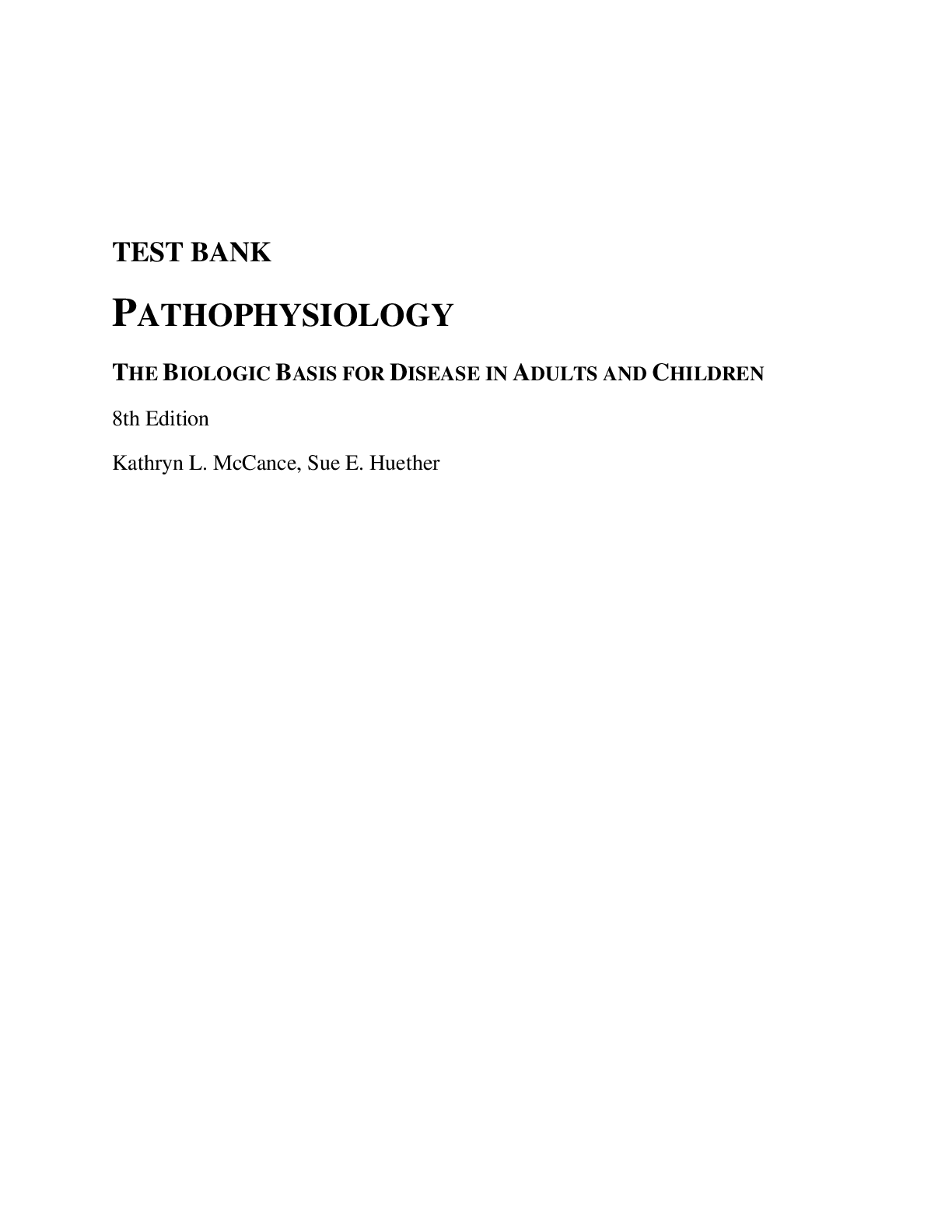

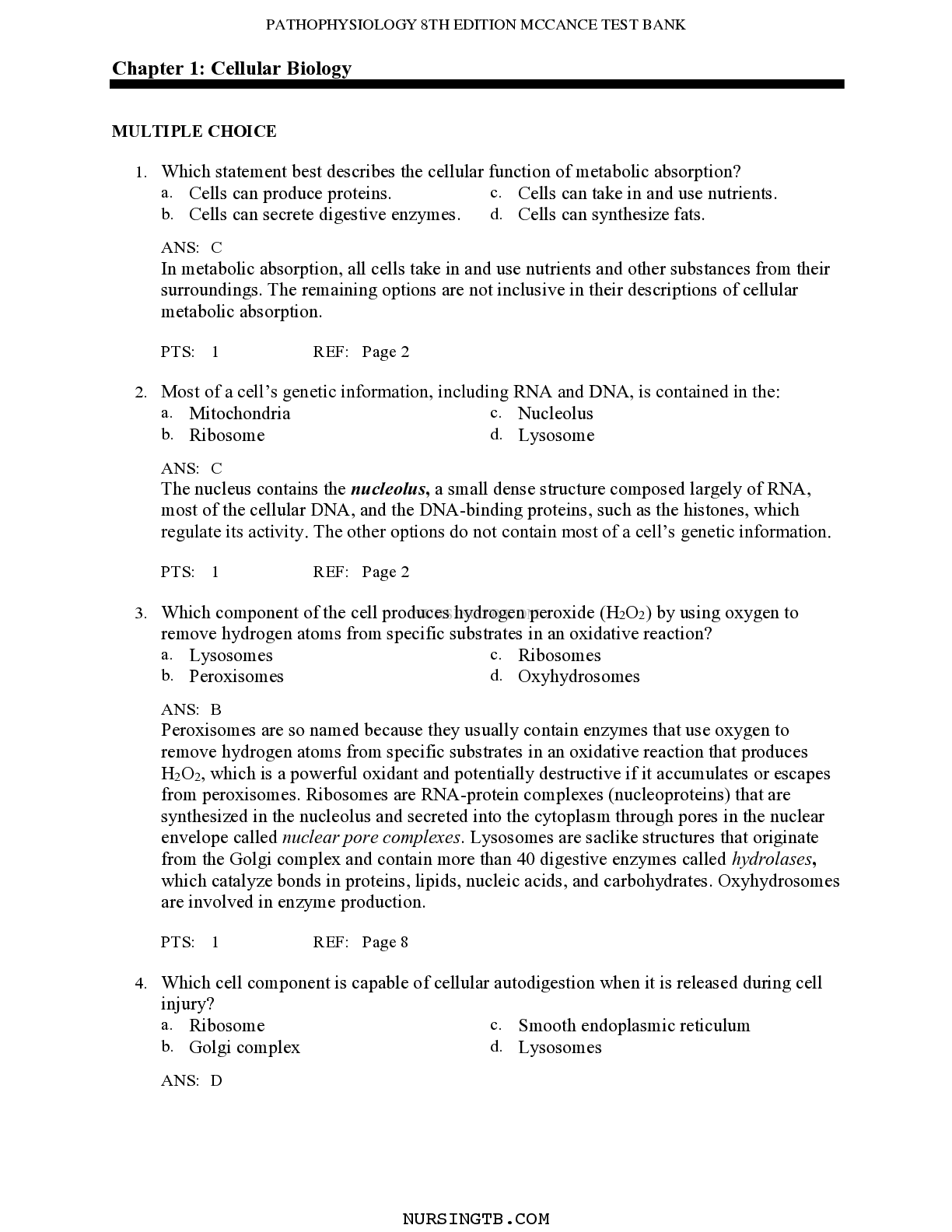
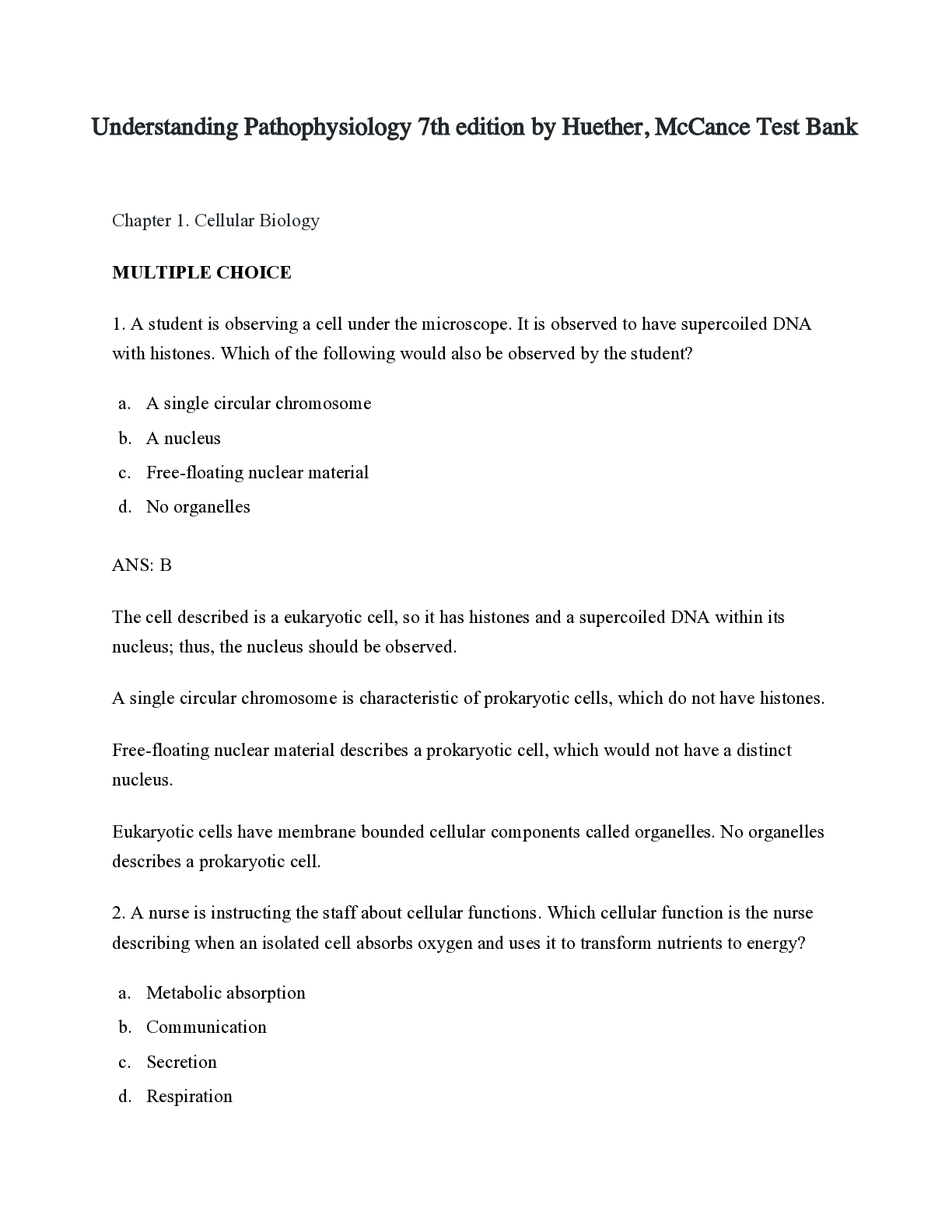
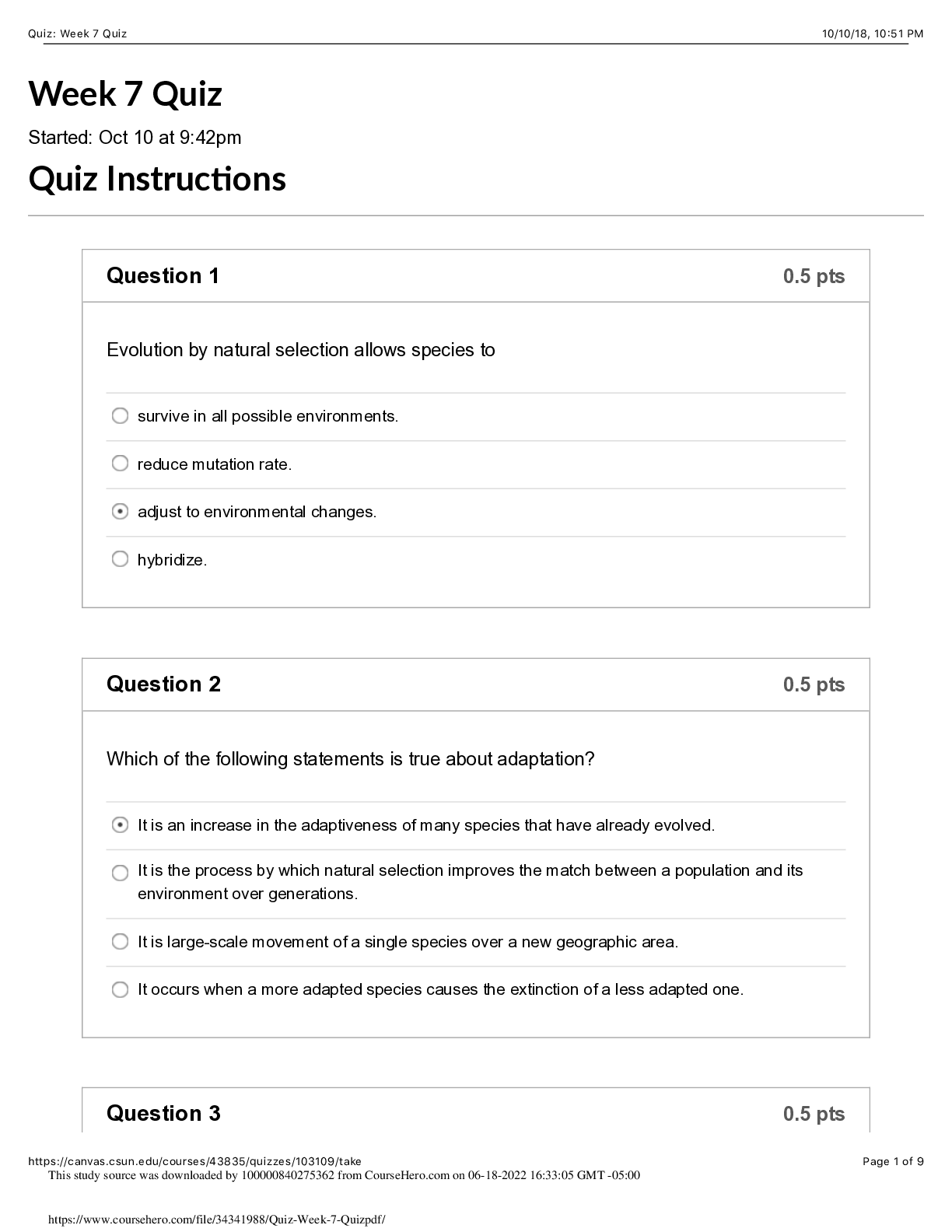
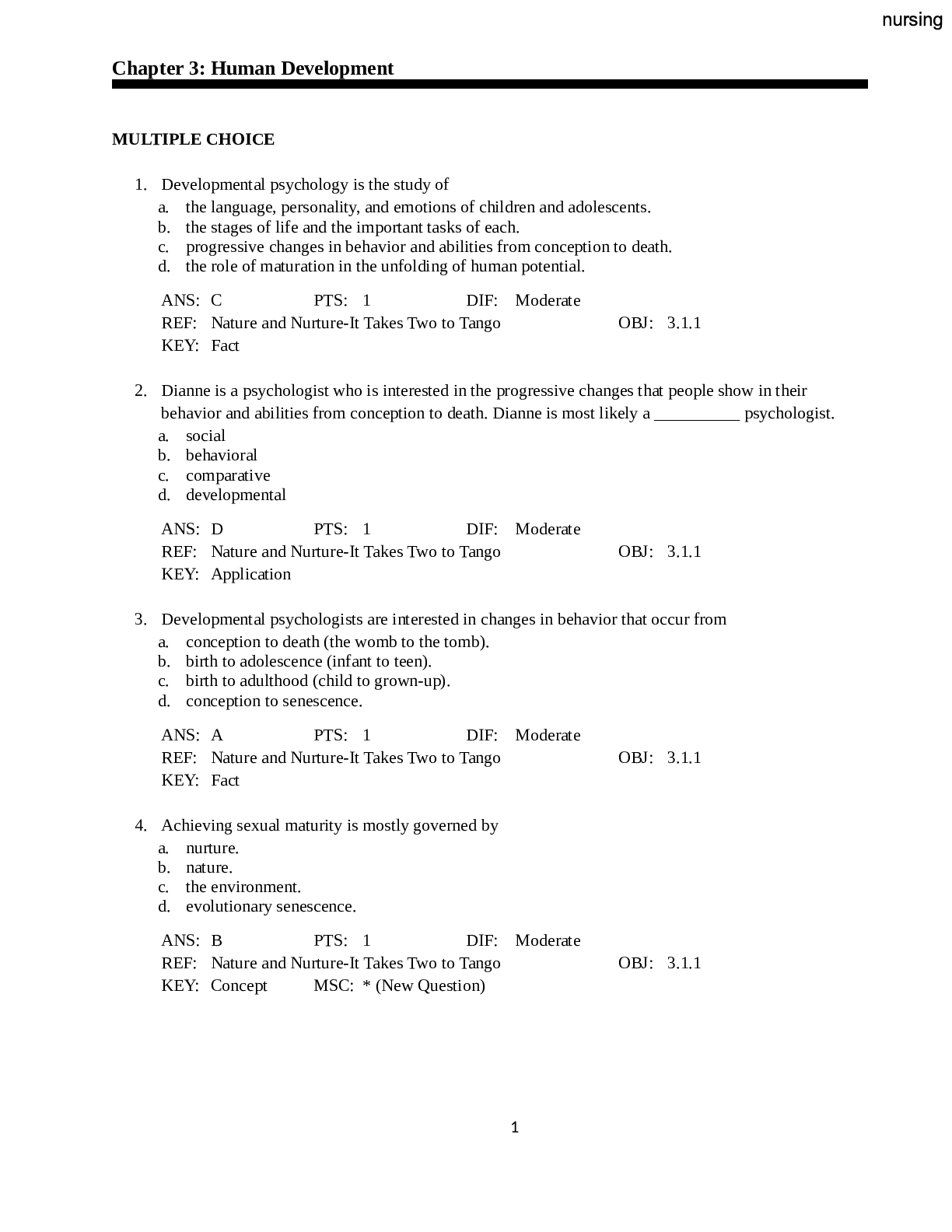

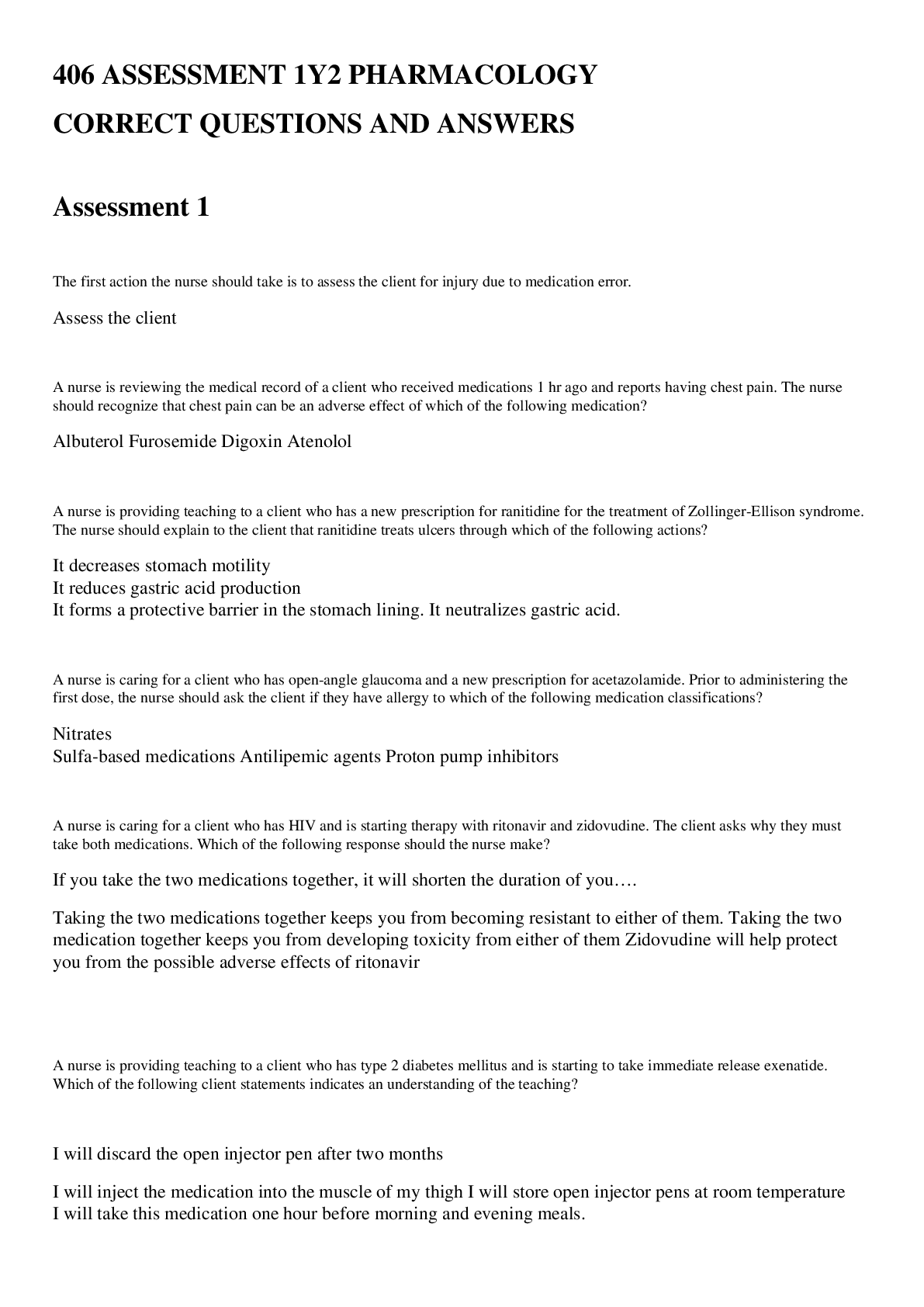
.png)




